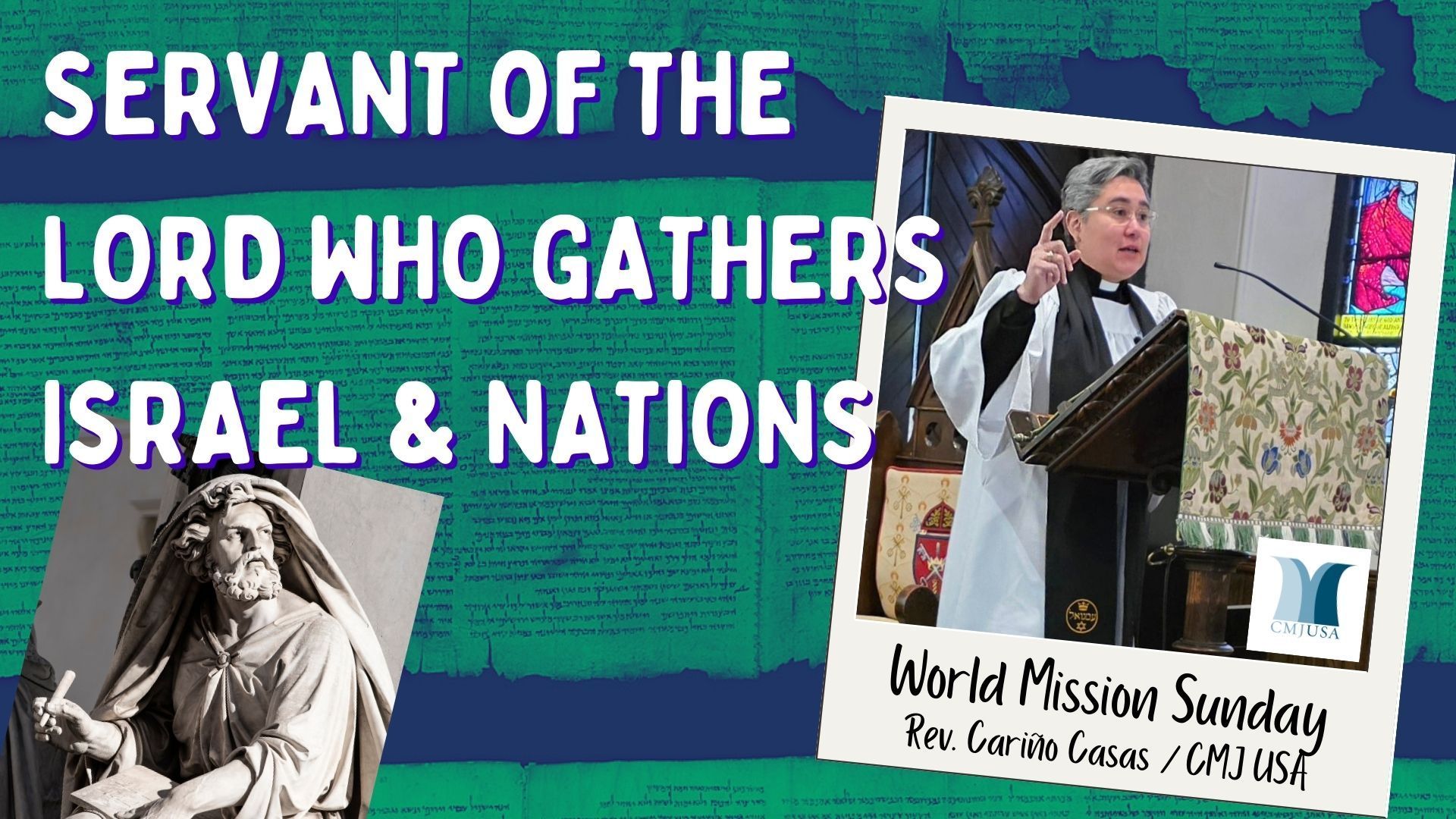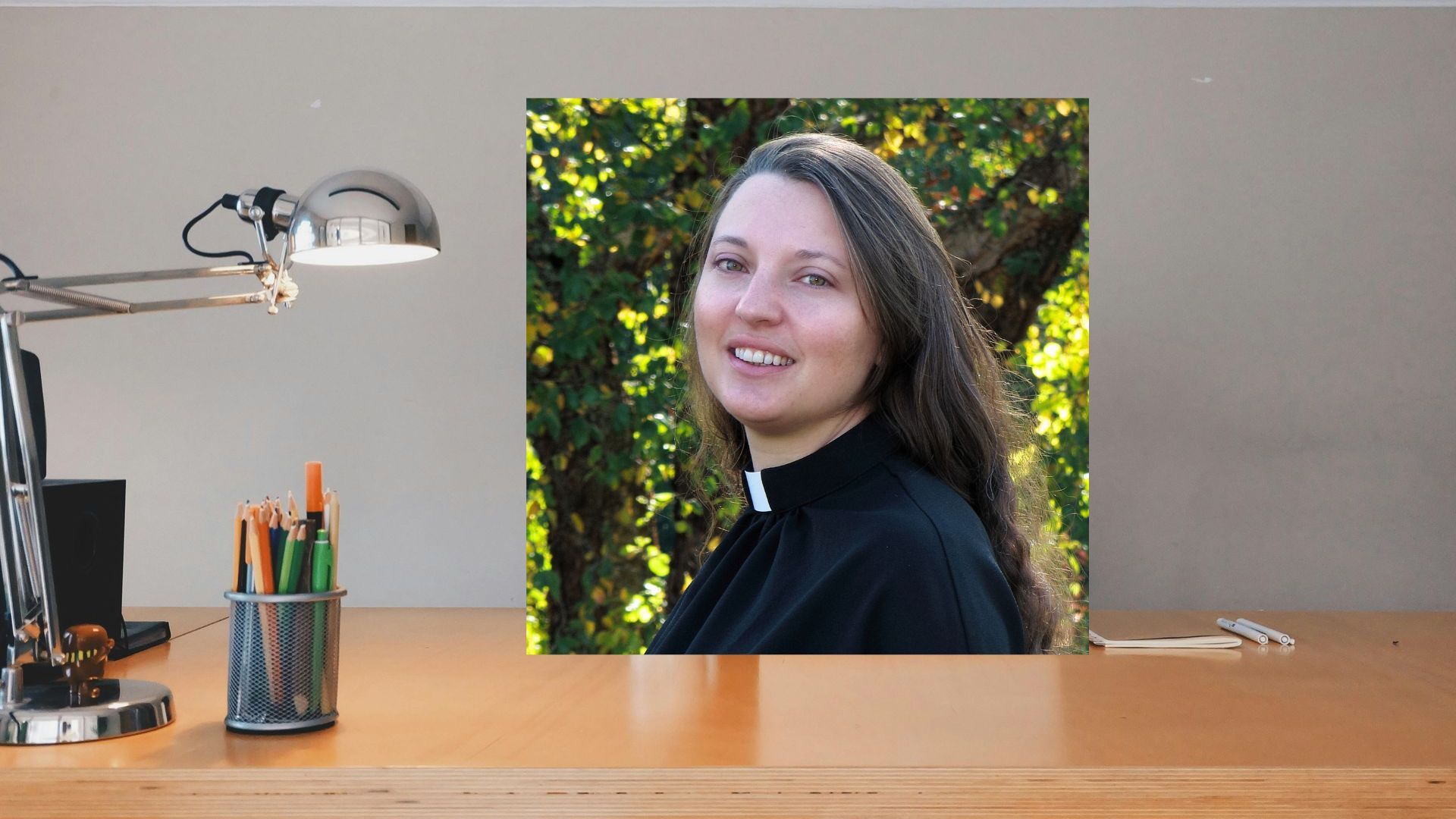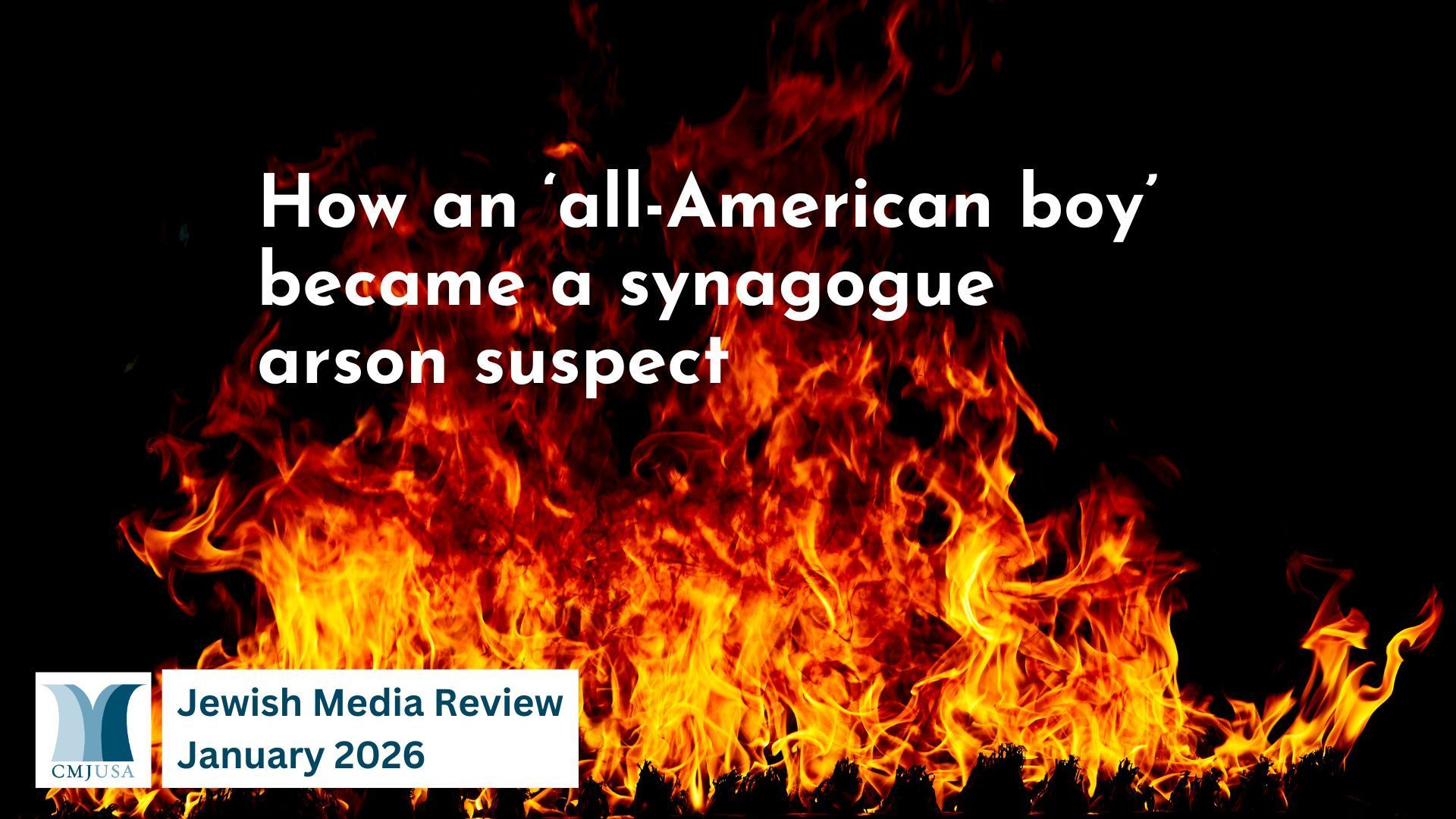God's Passover for the Nations
Pharaoh asks Moses to bless him and Egypt. God answers his prayer in Yeshua
Preached at New Jerusalem House of Prayer
Parashat Bo
- Torah: Exodus 10:1-13:16 - focus on Exodus 12:29-42
- Prophets: Jeremiah 46:13-28
- Gospel: John 19:31-37
- Psalm 77
I will remind myself of Yah’s doings;
yes, I will remember your wonders of old.
I will meditate on your work
and think about what you have done. (Psalm 77)
Parashat Bo recounts the first Passover, when God freed hundreds of thousands of Israelite slaves from the oppression of Egypt.
We remember God's great victory every year during the Passover Seder. And when you are a regular reader of the Psalms and of the Prophets, you see how the Exodus story is recounted over and over throughout. Passover is the template by which God's acts of salvation are executed in the history of Israel and even the history of all of us here today.
On the night he was betrayed, Jesus remembered with his disciples the great salvation story of Passover and began to reveal how it all pointed to God's ultimate act of salvation for the whole world. Jesus, the Lamb of God who takes away the sin of the world, would soon die so that God's wrath would pass over all of us sinners.
Rather than retelling the
Hagaddah
this morning, let's look at the losers, Pharaoh and Egypt. We know Passover is about freedom for Israel but it is also about judging Egypt's idolatry. That is made clear by the 10 plagues during which God shows the gods of Egypt to be powerless and any prayers to those false gods to be in vain.
Is there any hope for the idolaters? Is there any hope for the rebellious who kick against God's power and kingship?
Let us see.
In
Exodus 12:29-42, God executes the final plague against Egypt, the death of the firstborn. This was to judge three idols connected to procreation and birth and a living firstborn bull that represented the bull god Apis. Firstborn everything died: livestock, family pets, servants, fathers, mothers, children.
When we celebrate the Passover Seder, we do so joyfully, triumphantly. We sing songs about the plagues and cheer God’s salvation.
But stop and imagine for a bit. You're an Israelite who gets the all-clear to leave Egypt. It's nighttime but the full moon is bright. You're carrying everything you own. When you go outside, all you hear is screams and wailing. The Egyptians are howling in horror and grief as they find their loved ones dead. The sound must have been horrendous. You're free but what you hear is souls in agony – wailing and gnashing of teeth.
Pharaoh's house is struck too, for “there wasn’t a single house without someone dead in it.” His heir is dead.
After resisting Moses nine times, finally Pharaoh is broken.
31[Pharaoh] summons Moshe and Aharon by night and says, “Up and leave my people, both you and the people of Isra’el; and go, serve Adonai as you said. 32 Take both your flocks and your herds, as you said; and get out of here! But bless me, too.”
Pharaoh finally gives God and Moses what they asked for. He releases all the Israelites and all their flocks. We see in another place that the Egyptians gave the Israelites gold, silver, clothing, whatever they asked for. Anything to get them to leave. “And thus they plundered Egypt.”
But notice what Pharaoh says at the end: “But bless me, too!”
Pharaoh is broken enough to ask for God’s blessing and mercy. Yes, he’ll change his mind again and chase after the Israelites to the Red Sea, where he’ll face his final defeat. But Moses has recorded Pharaohs request for a blessing. It’s here so let’s take it seriously. “Bless me, too!”
If you remember the Exodus story, Moses told Pharaoh that the Israelites needed to go worship God in the wilderness. Jewish commentator Ibn Ezra says Pharaoh is asking Moses to pray for him when they worship God. Nachmanadies (the Rambam) says “Pharaoh wants them to bless him and his kingdom.” [1]
Does God bless the kingdom of Egypt?
Let’s go to our Haftarah portion in Jeremiah 46. It’s centuries later. Israel made it to the Land after the Exodus. They’ve had judges, prophets, and kings. They’ve had external and civil wars. They’ve worshiped the God of Abraham, Isaac, and Moses but they’ve also worshiped false gods.
Most of Jeremiah is God warning Israel that judgment for their idolatry and injustice is coming. But God also judges Israel’s neighbors. God is concerned with the sins of the all nations.
The whole reason God called Abraham is to bless the nations that rebelled at the Tower of Babel. God is regathering not only scattered Israel but also the scattered nations.
God is concerned about the nations even as he is concerned about Israel.
We see God calling out Egypt in Jeremiah 46.
25
Adonai-Tzva’ot, the God of Isra’el, says: “I will punish Amon from No, Pharaoh, and Egypt with her gods and kings — that is, Pharaoh and those who trust in him; 26 I will hand them over to those who seek their lives, to N’vukhadretzar king of Bavel and to his servants. But afterwards, Egypt will be inhabited, as in the past,” says
Adonai. (CJB)
In Jeremiah’s time, just as Judah is going into Babylonian captivity, God is again punishing Egypt, this time using Nebuchadnezzar.
Adonai specifically calls out the chief god Amon-Re, the creator sun god of Egypt, “the king of gods.” God promises that No, that is Thebes, and its temple to Amon-Re will become a wasteland.
Egypt and her kings continued to worship idols, and the one true God wants Egypt and all the nations to know his name.
Like in Exodus, there is hope of mercy in the midst of judgment. God says Egypt will be inhabited as in the past. Egypt’s exile and destruction are temporary.
There is another place where God judges Egypt harshly and offers words of hope. Isaiah 19.
Here’s a quick summary of Isaiah 19:
God says he’s on his way to Egypt to save Israel again, this time from an ill-advise alliance. Egypt’s idols tremble. Society starts to break down into civil war. People move from their regular religious devotion to seeking mediums and spiritists. A dictator steps into the disarray and harshly restores order.
Then drought. Famine. Unemployment. Economic collapse.
The dictator builds a cabinet of fools. God has confused their advice, and the leader makes bad decisions.
The people of Egypt are depressed and despairing. They are in fear and panic.
“17 Just mentioning the land of Y’hudah to the Egyptians will throw them into panic; they will be afraid because of what Adonai-Tzva’ot has planned for them.”
But then the word of the LORD shifts. God stops talking about calamity and speaks of restoring Egypt. Listen to the second half of Isaiah 19.
19 On that day there will be an altar to Adonai in the middle of the land of Egypt, as well as a standing-stone for Adonai at its border. 20 It will be a sign and witness to Adonai-Tzva’ot in the land of Egypt; so that when they cry out to Adonai for help because of the oppressors, he will send them a savior to defend and rescue them.
21
Adonai will make himself known to Egypt;
on that day, the Egyptians will know
Adonai.
They will worship him with sacrifices and offerings,
they will make vows to
Adonai and keep them.
22 Yet
Adonai will strike Egypt, both striking and healing,
so they will return to
Adonai.
He will listen to their prayers,
and he will heal them.
When God judges, it’s not arbitrary and it’s without malice. God is righteous. Sin and evil cannot survive in his presence. But God’s character is to always have mercy. That’s how he defines himself to Moses: “The Lord, the Lord, a God merciful and gracious, slow to anger, and abounding in steadfast love and faithfulness, keeping steadfast love for thousands, forgiving iniquity and transgression and sin but who will by no means clear the guilty” (Exod 34:6-7).
That’s God’s character universally. God is not just merciful and gracious to Israel but also to the nations. He loves. He forgives. He punishes, yes, but to prompt repentance and restoration.
God strikes Egypt to heal them of their idolatry. And we see the Egyptians setting up an altar to the God of Israel and crying out to him for help. They echo Pharaohs plea to Moses, “Bless me too!”
And God will answer Egypt’s cries. “He will send them a savior to defend and rescue them… Adonai will make himself known to Egypt; on that day, the Egyptians will know Adonai… He will listen to their prayers, and he will heal them.”
Wow! It is wow that God has said there is a day when Egypt will submit to his kingship. On that day God will heal them and have relationship with them.
What is even more surprising about Isaiah 19 is how it ends. God has been talking to Egypt this whole time. Then the lens widens and God suddenly has the whole Middle East in view.
23 On that day there will be a highway
from Egypt to Ashur (Assyria).
Ashur will come to Egypt and Egypt to Ashur,
and Egypt will worship with Ashur.
24 On that day Isra’el will be a third partner
with Egypt and Ashur, a blessing here on earth;
25 for
Adonai-Tzva’ot has blessed him:
“Blessed be Egypt my people,
Ashur the work of my hands
and Isra’el my heritage.” (CJB)
We know who Egypt is. We know who Israel is. Who is Ashur (Assyria)? At its height, the Assyrian Empire covered the nations we know now as Turkey, Iraq, Lebanon, Syria, Jordan, even parts of Iran and Saudi Arabia. It’s all the nations that surround Israel and are usually in conflict with her.
On the day that Egypt repents, God says there will be a highway, a network of travel, connecting nations that have mostly been in conflict for thousands of years.
In 2009, I went to Israel for the first time because God told me he had a job for me there. One of the first places the Lord sent me was a 24/7 house of prayer. They had a teaching once a week, on Monday nights, and that’s the night that I walked in for the first time.
And the teaching was on God’s amazing promise at the end of Isaiah 19. It has stuck with me.
I went to Israel because the LORD had been nurturing in me a love of the Jewish people as I got to know more and more of Jesus’ Jewishness. And God called it good and then said, See how I love ALL the peoples of the Middle East.
There are many Jesus followers who have been inspired by this Isaiah 19 promise, especially in the Middle East. I know of former Muslims who partner with Messianic Jews to minister the love and mercy of Jesus through out the Middle East. I’ve heard amazing testimonies of Jesus showing up in dreams and visions to Muslims in Mecca.
I’ve seen Jordanians who grew up hating Israel lovingly embrace and pray for Israeli believers. This is God’s Middle East peace plan!
Back when ISIS was tearing across the Middle East, the house of prayer sent a team to minister in the refugee camps in Turkey and northern Iraq. The team was composed of an Israeli Jew and a Palestinian Arab. They were a ‘One New Man’ team. The refugees were in disbelief: How are an Israeli Jew and Palestinian friends?! That question became an open door to talk about Jesus and how he reconciles the nations.
And isn’t that what Paul is doing in the New Testament? He’s building ministry teams of Jews and Greeks working together. He speaks of Gentiles grafted into Israel. He says Gentiles become children of Abraham through faith in Jesus, the ultimate Son of Promise.
That Son of Promise, Yeshua the Messiah is our shalom. He has made the two groups one and has destroyed the barrier, the dividing wall of hostility… God’s purpose has been to create in himself one new humanity – One New Man – out of the two, thus making peace and in his one body to reconcile all nations to God through the cross, by which he put to death our hostility (Eph 2:14-16).
God through the cross has put to death the hate between Jew and Arab, between black and white, between men and women, insert two warring peoples here.
See how God has answered Pharaohs prayer request to bless Egypt! God calls Egypt “my people.” Then he calls the peoples of the greater Middle East “my handiwork.” And Israel remains his inheritance.
God loves the Sons of Jacob. God loves the sons of Ishmael. God loves Jew and Arab, Asian and European, African, and Latin American. When a church body represents these groups, it is a microcosm, a firstfruits expression of God’s redemption of humanity, a redemption that is still playing out.
We started our readings today by retelling part of the first Passover. Our Gospel passage takes us to the Ultimate Passover.
John tells us it was Preparation Day for the next day was a special Sabbath. The seventh day is the weekly Sabbath, but the Feasts of the LORD are also Sabbaths. Dead men on crosses on the way into Jerusalem will be unseemly and could defile Passover worshipers. The Judeans – the Pharisees and Sadducees – want the dead removed but they’re not dead yet. So the Judeans ask the Romans to break the legs of the crucified so they can’t stand themselves up to breathe.
But when they get to Jesus, he is already dead. The Romans break the legs of the two thieves but not of Jesus. And John remembers what Exodus 12 says about the Passover lamb: “Not one of his bones will be broken.”
See Jesus crucified and
- behold the Lamb of God who causes God’s righteous judgment to pass over us.
- Behold the Messiah who reconciles us rebellious nations to God.
- Behold the Jesus the Lord who tears down the wall that separates Jews and Gentiles, Yeshua who reconciles warring peoples and teaches us to love one another as he has loved us.
Jesus commanded us that we celebrate that mini Passover Seder every time we gather to remember him and the great salvation that he has won for us. When we take bread and wine together, believer,
Let us remind ourselves of
Yah's doings;
yes, let us remember his wonders of old.
Let us meditate on his work
and think about what our great God has done.
Footnote
- Michael Carasik, ed., Exodus: Introduction and Commentary, trans. Michael Carasik, First edition., The Commentators’ Bible (Philadelphia, PA: The Jewish Publication Society, 2005), 88.
Blessed by this post? Ready to sow into the work of CMJ? No gift is too small. we are blessed by your partnership.



